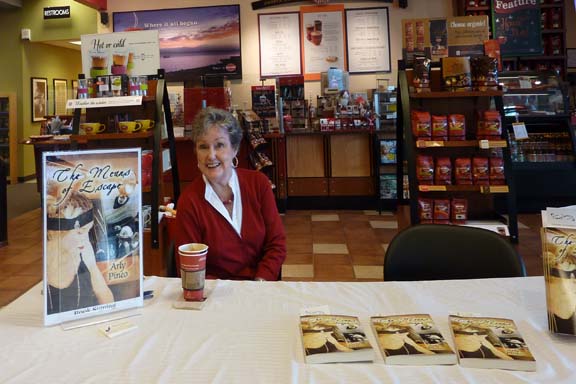HARRY’S WAR
CHAPTER ONE
April, 1861.
Time had run out for 1st Lieutenant Harry Scold. He approached the depot’s entrance with his younger brother, Woody, dressed in town clothes he’d long ago outgrown. Scold had become a part of an irrepressible cause. Insensible to fear, excitement for this generated cause spread with the speed of a national epidemic.
Blue uniforms of the 6th Massachusetts Infantry Volunteer Regiment surged through Boston’s South Station like a nor’easter’s wave. A feverish air hovered, evident in the rise of loud male voices with expectant faces, some barely old enough to strop a razor. They faced each other to make their farewells. Harry’s new commission forced him to abandon his brother for whatever Fate had in store.
“I ain’t sorry you’re leavin,” remarked Woody, his mouth bitter with a youth’s petulant injustice. “Ma thought you’d come back to the farm once you finished you’re schoolin.”
“West Point is not about farming,” answered Harry. “I’ve my duty to uphold. You knew that.”
“But it’s me stuck with all the extra chores you used to do,” his brother protested. “You said you’d get us a hired hand. What happened?”
“I’ll have to get paid first. Don’t worry. I promised Ma.” Harry felt the April sun through his woolen uniform. Damn, but it itched. “I’ll write as much as I can.” This sounded like more of an excuse than a commitment. Woody frowned, surly disbelief crossed his adolescent features.
When Harry’s orders came after graduation he experienced pure elation. Life in Jericho in Chittenden County, Vermont had been a struggling existence. Six foot snow drifts blocked the path to the barn where cows waited for milking. Spring and summer were not much better when crops had to be coached out of the rocky soil.
All-out war was about to begin. He held out his hand to shake Woody’s, who kept swallowing like he had a mouth full of sawdust.
“You look as if you’ll never see me again,” he said holding back a smile. They finally shook hands. “It’s been said I’d be hard to kill.”
“Who in the hell said such tom-foolishness?” Tears stood out in the boy’s eyes.
“Some plebe back at the Point.” Moved by Woody’s distress, Harry decided to make a quick goodbye. “Go along now. I’ve got to see to Skeddadle’s loading.”
“That damn nag will be the death of you,” Woody warned.
Without a backward glance, Harry headed to the freight yard to see about his horse. The pride of his life, Skeddadle was a bright Bay stallion with a full black mane, a renegade biter, reckless jumper with an unreliable temperament and unmatched speed. As he approached the Calvary’s freight car, the guard, a disheveled adolescent with straw in his hair saluted and shouldered his gun.
"Put down your weapon before you shoot someone,” Harry barked. “My horse settled in?”
“Yes, sir,” replied the boy with some doubt. A crash against the boxcar’s wall followed by an angry snort answered Harry’s question. He felt somewhat sorry for the youth’s unfortunate assignment. Riding with the horses all the way to Washington might be a challenge. Harry removed a packet of sugar from his pocket and passed it to the boy.
“Give Skeddadle a lump of this if he acts up. By the way, son, what’s your name?”
"James Jefferson Jones, sir.”
“Carry on, Jones.”
“Yes, sir.”
Lieutenant Scold headed for the troop train, his heart a mixture of anticipation and pride, followed by a queasy stomach. All the young men, he wondered. No one has a clue what war will be like.
* * *
The Union Army had priority railroad space, even in first class when resident Lincoln called for seventy-five thousand volunteers. Though the windows were open the press of bodies produced the smell of rank anxiety, cigar smoke and creosote as the iron wheels rumbled out of the South Boston Station. Half of the fresh recruits turned quiet, a sure sign of imbibing the night before and now suffering the after effects, they slouched in their seats. The others sang a rowdy “John Brown’s Body” as if they were going on a picnic. They seemed neither gallant nor brave --- just indescribably silly like childhood arrested.
The engine’s whistle screamed. Slowly the landscape changed. Beyond the city limits the train passed the triple-decker tenements of the Irish immigrants to the countryside of red barns and white farm houses,prodding Harry’s memories of the Vermont farm he’d left. He saw his mother bending over the iron sink in the milk room where the metal separators were washed. A low fire burned in the grate. Empty maple sugar pails stacked by the shed door for the drawing of the syrup and the back-breaking job of sugaring down to commence. After patrolling the aisle, Harry sank into an aisle seat. No more of this. He had to concentrate on the mission at hand.
Subscribe to:
Post Comments (Atom)



No comments:
Post a Comment